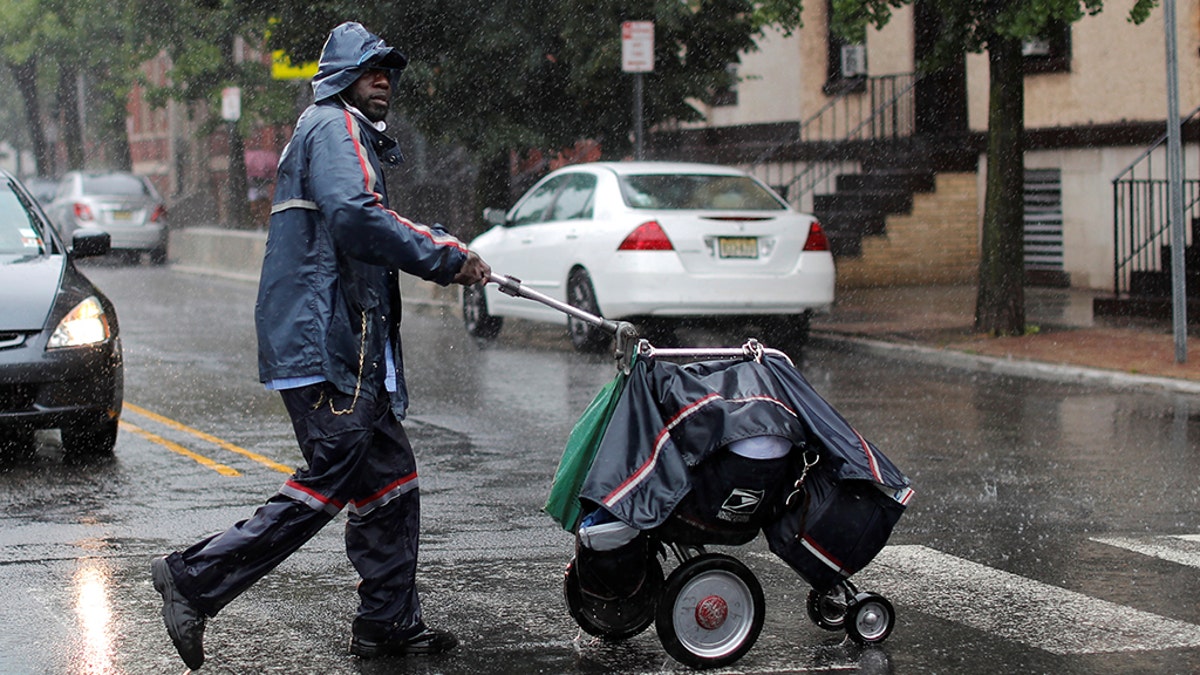How COVID-19 crisis threatens US Postal Service
Democratic lawmakers warn U.S. Postal Service may shut down without more funding; Fredric Rolando, president of the National Association of Letter Carriers, weighs in.
The U.S. Postal Service is bracing for a myriad of changes, including slashing overtime pay for workers and the potential for delayed mail deliveries for customers due to multibillion-dollar revenue losses during the coronavirus pandemic.
Funds for the postal service will likely dry up by the end of September if Congress doesn't intervene, and the new head of the agency, Postmaster General Louis DeJoy, is pushing for employees to have a "different mindset" and be receptive to frugal changes.
CASH-STRAPPED POSTAL SERVICE 'IN PERIL' WITHOUT INTERVENTION FROM CONGRESS: WATCHDOG
Late trips will no longer be authorized. If postal distribution centers are running late, "they will keep the mail for the next day,'' postal service leaders say in a document obtained by The Associated Press.
“One aspect of these changes that may be difficult for employees is that — temporarily — we may see mail left behind or mail on the workroom floor or docks,'' another document said.

A United States Postal Service (USPS) mail carrier walks through heavy rain as Tropical Storm Fay sweeps across the heavily populated northeastern United States in Jersey City, New Jersey, U.S., July 10, 2020. REUTERS/Mike Segar
DeJoy's changes to the postal service comes a month after the Trump donor assumed his new position.
In a memo first reported by the Washington Post on Thursday, entitled “PMG Expectations and Plan,'' the agency said the changes are aimed at "making the USPS fundamentally solvent which we are not at this time.''
The postal service reported a $4.5 billion loss for the quarter ending in March prior to the steep economic impact of coronavirus pandemic but things only got worse as the virus ramped up across the country.
CASH-STRAPPED POSTAL SERVICE 'IN PERIL' WITHOUT INTERVENTION FROM CONGRESS: WATCHDOG
Single-piece, first-class mail volume fell 15 to 20 percent week to week in April and May, agency leaders told Congress in a bid to secure more funding from the government. Losses will increase by more than $22 billion over the next 18 months, they said.
Republicans in Congress have been slow to react to pleas to bail out the postal service. Despite approving a $10 billion line of credit for the agency, looming restrictions by the Trump administration have made the agency weary to tap into it. Democrats approved another bill to dole out $25 billion for mail services but Republicans in the Senate have yet to pass it.
An upsurge in package deliveries was a welcome reprieve from the economic pitfalls the postal service has been experiencing, but a surge in expenses for personal protective equipment, deep cleaning of facilities and temporary workers to replace postal workers who get sick offset the boost, Mark Dimondstein, president of the American Postal Workers Union, told the Associated Press.

United States Post Office mail truck (USPS) parked in Miami, Florida (iStock)
As many as 12,000 postal workers have contracted COVID-19 and at least 64 workers have died from the virus.
Skeptics of the stalls in Congress to help the agency say its a ploy to prevent mail-in voting come November, a hot button issue for President Trump, who deeply opposes the option, pointing to unverified claims of voter fraud.
CLICK HERE FOR THE FOX NEWS APP
Rep. Bill Pascrell, D-N.J., said DeJoy's new proposal to stall mail deliveries would be a "stunning act of sabotage against our postal service.”
“Trump and his cronies are openly seeking to destroy the post office during the worst public health crisis in a century,'' Pascrell said.
With states increasingly relying on voting by mail to continue elections during the pandemic, destabilizing the postal service not only threatens the economy and the jobs of 600,000 workers but is also "a direct attack on American democracy itself,'' Pascrell said.
The Associated Press contributed to this report.

